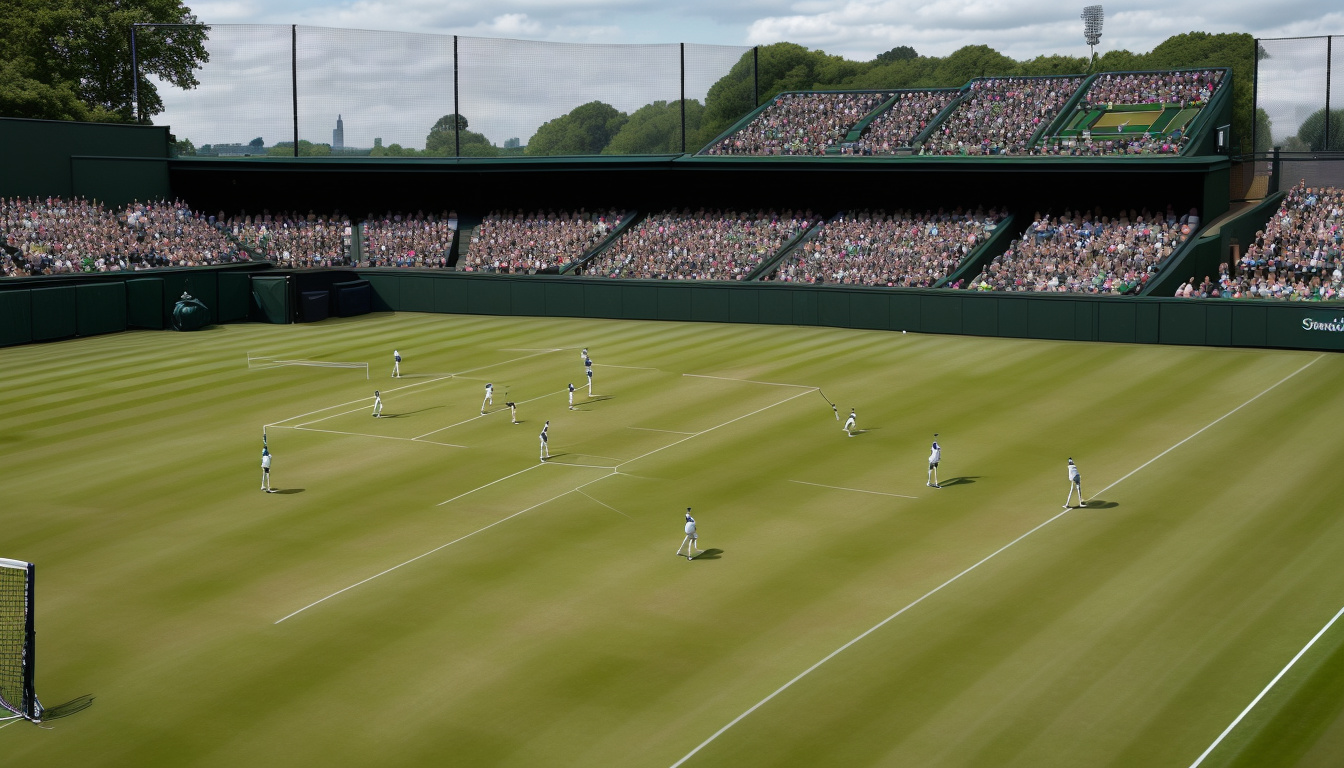Tennis Players Voice Concerns Over AI Line-Calling Technology at Wimbledon
July 7, 2025 – Wimbledon’s recent adoption of AI-powered line judging technology has sparked criticism from several professional tennis players who question its accuracy and reliability during the prestigious tournament.
Controversy Surrounding AI Line Judges
For the first time, Wimbledon replaced human line judges with an Electronic Line Calling system (ELC) that utilizes AI to determine whether tennis balls land in or out of play. While the move was intended to modernize officiating and improve accuracy, numerous players have expressed frustration over what they describe as faulty calls that have directly impacted match outcomes.
British stars including Emma Raducanu and Jack Draper were particularly vocal. Raducanu highlighted an incident where the AI failed to detect a ball hit out by her opponent, forcing play to continue as if the shot was valid. Television replays appeared to confirm the ball was out, intensifying the controversy. Draper echoed concerns about the system’s precision, revealing his belief that the technology was not “100 percent accurate.”
The new technology’s limitations were further exposed by American player Ben Shelton, who had to hasten his match after being informed that the AI system might cease functioning due to diminishing daylight. Additionally, players criticized the automated speaker system’s volume, with one deaf player emphasizing that the absence of human line judges’ hand signals made it difficult to discern when points were won or lost.
Technical Glitches and Human Intervention
Problems escalated during a weekend match between British player Sonay Kartal and Russia’s Anastasia Pavlyuchenkova when the AI failed to call a clearly out ball. The rally was stopped by the umpire, who instructed the players to replay the point after it was revealed that the AI tracking system had been accidentally switched off during the match. Wimbledon issued an apology, attributing the failure to “human error,” and assured the public that adjustments were made to prevent repetition of such mistakes.
Wimbledon Defends the AI System
Despite the criticisms, Debbie Jevans, Chair of the All England Club—Wimbledon’s organizing body—defended the implementation of AI line calling. Jevans noted that prior to the change, the club frequently faced calls from players and fans for electronic line judging, citing its superior accuracy compared to traditional human officiating on the wider professional tour.
A Wider Debate on AI in Sports
Wimbledon’s experience is not isolated. Earlier this year, German player Alexander Zverev posted on Instagram highlighting a questionable call made by the same automated system at another tennis event, where a ball was incorrectly called in despite visual evidence showing it landed out of bounds.
Such incidents feed ongoing discussions about the role of AI in sports officiating and whether a balance between human judgment and technological assistance might best serve fairness and accuracy. The debate reflects broader trends seen in various industries where automation is integrated, with some companies, like Klarna, recently reversing earlier pushes for full automation in favor of reintroducing human roles.
As tennis and other sports continue to explore AI technology, finding the ideal integration that satisfies all stakeholders remains an evolving challenge.
Dominic-Madori Davis, Senior Reporter at TechCrunch, New York City










